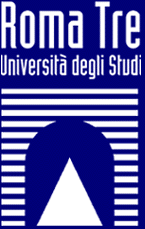 _School
of Arts and Letters
_School
of Arts and Letters
"Rendering Culturally Connotated Experiences in English"
This course is meant to be the prototype of a possible regular Third Year English course, to be offered, perhaps as soon as next academic year, when language is finally taught as a discipline administratively separate from literature courses. The course is also meant to serve as one of the training seminars offered to students of English (ANY year) who are regularly enrolled in the Indirizzo Traduzione.
"All communication is translation," as Steiner reminds
us (in Katan 1999). For even when we explain an event to someone
using our native language, we end up translating (or transposing) one order
of representation into another — turning mental imagery into verbal concepts
— in function of our interlocutor's capacity to understand.
It is in this sense that the present course may be said
to teach translation skills in English. The focus will be, not on
words, but on orders of representation linked to communicative intents.
Students will be lead to narrate — in written and spoken English — real
experiences that are culturally connotated. Success in narrating
will therefore require success in translating one's "Italian" experiences
into words and imagery that are meaningful to a native speaker of English.
This will be measured by testing if the observed reactions of native speakers
of English are similar to those of Italians when hearing or reading the
original event narrated in Italian.
Teaching goals and methods:
Students will learn to write, direct and perform a scene
in English dealing with an authentic experience they have "lived" in Italian.
To prepare themselves for the task, students will read and discuss texts
on translation theory, on the descriptive and imaginative uses of English,
and on techniques of narration and dramaturgy useful in cross-cultural
situations.
Attendance, Self-Study, Marks:
Students who attend 3/4 of the lessons will be dispensed
from reading two of the four works making up the course syllabus.
In addition, these students may elect to do study tasks during the semester.
The tasks involve reading two works from the syllabus and, through
empirical research, verifying some of the authors' assertions. Students
completing a sufficient number of tasks well will not have to take the
final exam. Non attenders must work out a self-study program with
the teacher by December 21, 2000. For office hours and phone/fax/email,
see http://host.uniroma3.it/docenti/boylan
Bibliography (Do NOT purchase these books yet!):
H.K. Bhabha. 1993. “Beyond the pale: art in the age of
multicultural translation.” In: Ria Lavrijsen (ed.). Cultural diversity
in the arts. Amsterdam: Royal Tropical Institute.
M. Byram & M. Fleming. 1998. Language Learning
in an Intercultural Perspective: Approaches through drama and ethnography.
Cambridge: Cambridge University Press.
R. Carter & M.N. Long. 1987. The Web of Words.
Cambridge:Cambridge University Press.
D. Katan. 1999. Translating Cultures: An Introduction
for Translators, Interpreters and Mediators. Manchester: St.
Jerome Publishing.